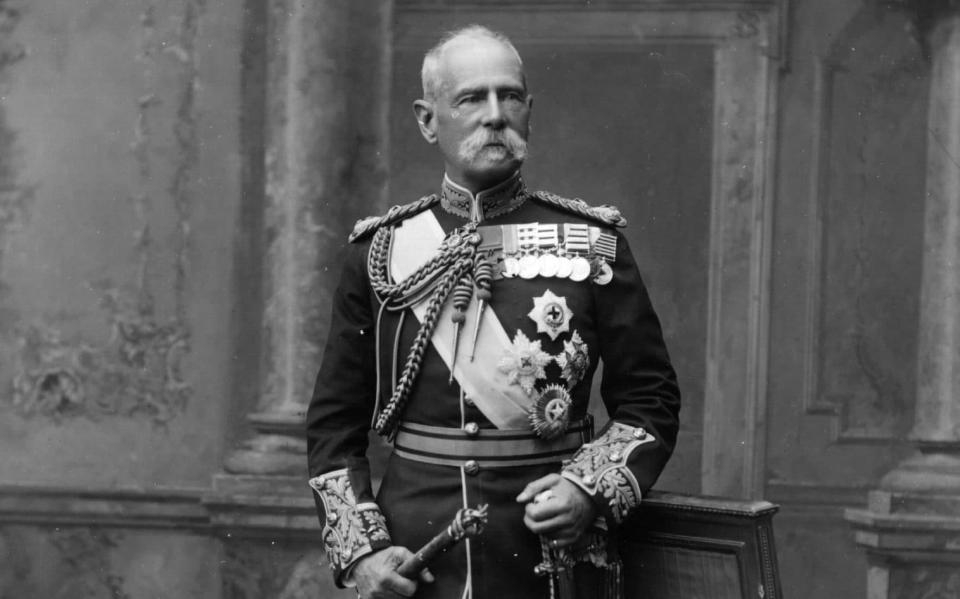Schools being renamed in campaign to remove ‘dead, white British guys’

A campaign is under way in Canada against public schools named after a “whole bunch of dead white guys” as one city looks to drop British historical figures in favour of local or indigenous icons.
This week, it was announced that Lord Roberts Elementary School in Vancouver will become West End Elementary after parents rejected any association with the former British field marshal over his role in putting people in concentration camps during the Boer War.
Names of other schools featuring King Charles III, David Lloyd George, and Sir Matthew Begbie – the first chief justice of British Columbia, posthumously nicknamed the “Hanging Judge” – have already been changed.
Activist parent groups are now targeting institutions named after Sir Winston Churchill, Captain James Cook, William Gladstone and Lord Nelson.
“As we look across all of Vancouver, we have schools named after a whole bunch of dead white guys,” said Ian Rowe, a member of the Vancouver District Parent Advisory Council.
He was the chairman of Lord Roberts Elementary School’s parent advisory council when the calls to change its name began in 2019.
“I’m confident we can come up with better names to help people find schools or better recognise the place that we live,” he told the CBC.
Britain’s history in Canada under scrutiny
The campaign is part of a wider reckoning on Britain’s history in Canada. British Columbia, named by Queen Victoria when the area became a British colony in 1858, has seen the most activity.
About a third of British Columbians say they would be willing to change the province’s name to recognise its indigenous heritage, according to a poll late last year.
Agitation is highest among young people, with 50 per cent of 18 to 34-year-olds wanting change, while 43 per cent want the Union flag removed from the province’s banner.
In Vancouver, the province’s largest city, some 29 of the 98 public schools are named after British people or symbols – more than are named after people from British Columbia (20) and more than three times as many as indigenous people or terms (eight).
The 1st Earl Roberts was one of Britain’s most successful military commanders of the 19th century. The Eton-educated Sandhurst graduate was awarded a Victoria Cross for multiple acts of bravery during the Indian Rebellion of 1857.

Afterwards, he led troops in the second Anglo-Afghan War, became commander-in-chief of British forces in Ireland and was promoted to the rank of field marshal in 1895.
However, it was his role in the Boer War that gained the most attention in western Canada.
After suffering early losses, Lord Roberts took over command of the British forces in South Africa. From Dec 1899, he revitalised the British military effort, together with the 1st Earl Kitchener, his chief of staff.
But part of this strategy included the “scorched earth” policy of burning Boer farms, while families who were forced from their homes were herded into concentration camps.
Between June 1901 and May 1902, of the 115,000 people in the camps, almost 28,000 died. Some 22,000 of them were children.
‘It’s comical how homogenous the names are’
A report prepared for the Vancouver School Board facilities planning facility said: “The primary legacy of Lord Roberts does not align with the District’s Mission of Values of respect, co-operation and social responsibility.”
There are similar feelings across the region. John Atkin, a Vancouver historian, told the CBC: “I think it’s time that we start considering getting rid of these things, and bringing something back that’s really rooted in place, location and culture that goes deeper than just the settler culture.”
In nearby Richmond, Kim Nowitsky, a parent, called into question schools named after Hugh McRoberts, a settler, and Matthew McNair, a pioneer farmer and businessman.
In a letter to Richmond News, her local paper, Ms Nowitsky said: “It’s almost comical how homogenous the names are. Of the 38 elementary schools in Richmond, 34 are named after British males, only two are women, only two of First Nation origin and one a Japanese male.
“Similarly, nine out of the 10 high schools have names of British male origin. In short, of our 48 public schools, 43 are named after British males. The disparity speaks for itself.”

 Yahoo Movies
Yahoo Movies 
